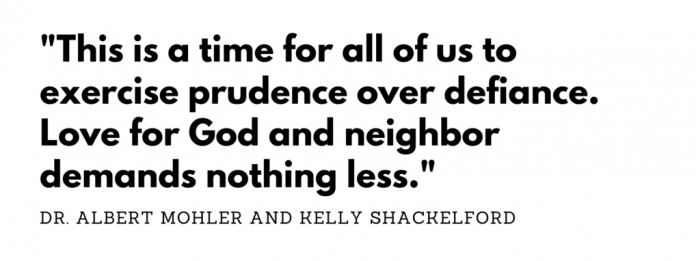This is the first Holy Week in Christian history to be observed primarily online.
From livestreamed services at the Vatican to video sermons recorded and shared on cell phones, Christians and Christian churches all over the world are meeting virtually these days.
This is a controversial subject. Some claim that governmental restrictions on worship services are an infringement of religious liberty and a violation of the separation of church and state. Others disagree, noting that such prohibitions do not single out religious gatherings but include all events at which people could become infected with coronavirus. Still others claim that church services should be classified as “essential” functions and allowed to continue under social distancing guidelines.
I agree with Dr. Albert Mohler and Kelly Shackelford’s statement in the Washington Post: “Asking houses of worship to briefly suspend large gatherings is neither hostile toward religion nor unreasonable in light of the threat. Rather, this is a time for all of us to exercise prudence over defiance. Love for God and neighbor demands nothing less.”
However, my purpose today is not to litigate this issue. Rather, it is to encourage us to reframe social distancing in a way that aligns with this day in Holy Week.
You might respond by noting that the Gospels do not record any activities of our Lord on the Wednesday before he died. I agree.
“God goes where he’s wanted”
Jesus spent the first four nights of Holy Week in Bethany, a suburb east of Jerusalem, at the home of his friends Mary, Martha, and Lazarus (cf. Matthew 21:17).

Making the homes of others his own was customary for our Lord. He stayed with Peter and his family when in Capernaum (cf. Matthew 8:14; Mark 1:29). He once said, “the Son of Man has nowhere to lay his head” (Matthew 8:20).
But as Philip Yancey noted, “God goes where he’s wanted.”
When…
… Read More
—
Click Read More to read the rest of the story from our content source/partners – Denison Forum.



